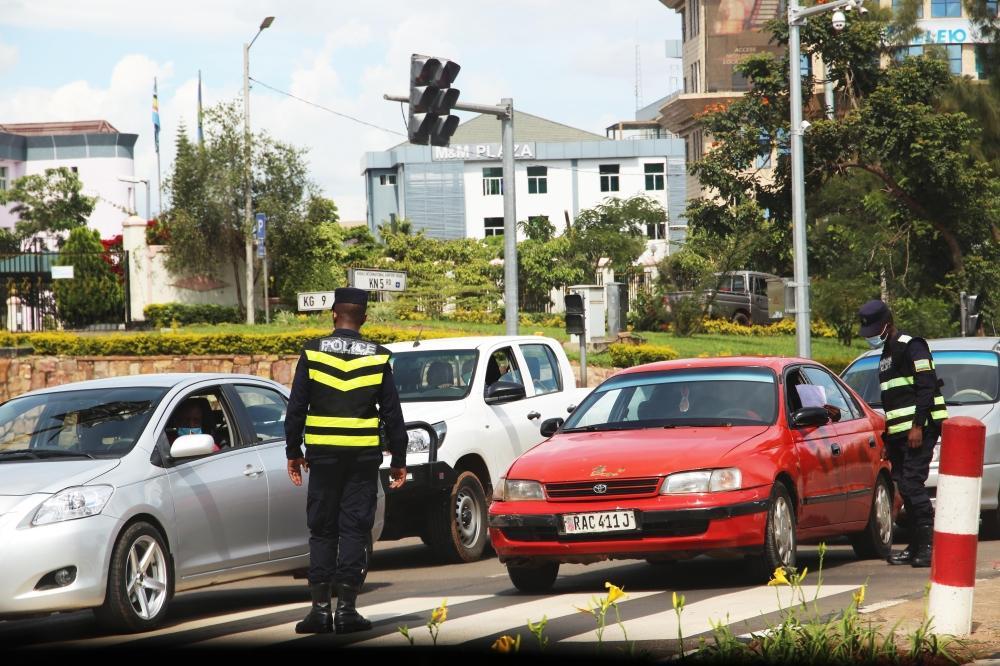Africa-Press – Rwanda. The government, on Tuesday, September 9, tabled a new draft law governing road traffic before Parliament to revise the country’s current road traffic legislation, which has remained unchanged for nearly four decades.
The existing road traffic law, enacted in 1987, is now considered outdated and no longer aligned with the realities of modern road usage, according to the explanatory note accompanying the new bill.
A plenary sitting of the lower chamber of Parliament adopted the relevance of the bill, and it will be analysed by a responsible parliamentary committee before being voted on by the plenary.
While it regulates the use of public roads — including the movement of people, animals, and vehicles — the law is implemented through several instruments, including a 2002 Presidential Decree (with amendments in 2005, 2008, and 2015); a 2024 ministerial order on the model for national driving licences; and a 2020 ministerial order setting the maximum fee for automobile technical inspections.
Addressing gaps in road traffic management
The proposed law aims to fill numerous legal and practical gaps identified in the current framework. Key among them is the lack of integration of technology in traffic enforcement and road user management.
While justifying the relevance of the bill, the Minister of Infrastructure, Jimmy Gasore, said the revision was long overdue, as the 1987 law no longer adequately addresses modern challenges in traffic management.
“The review of the existing legislation governing road traffic is therefore crucial to ensure road safety, adapt to evolving technologies and driving behaviours, and maintain the effectiveness of traffic laws, ultimately aiming to reduce accidents and casualties,” Gasore said.
Moreover, the penalties for road traffic offenders that were included in the Penal Code of 2012, Article 592, were not catered for in the 2018 law determining offences and penalties in general as it was decided that such penalties be catered for in the specific law regulating the sector.
This is thus a legal gap that needs to be addressed by a new law governing road traffic, Gasore said.
The bill addresses several issues not covered by the existing law, including use of drugs while driving; provisions on the management and regulation of driving schools; standards for conducting driving tests; and the use of technology in road traffic enforcement (such as speed cameras, alcohol tests).
Incentivising drivers with good behaviour and penalizing those who violate traffic rules
Again, the current law needs to be revised to accommodate the traffic management dynamics with the main purpose to enhance road safety. For that reason, the draft law governing road traffic caters for, among others, demerit and merit point system – to incentivise good driving behaviour and penalise traffic rule offenders – expected to improve the behaviour of road users.
Gasore explained that the system aims to go beyond monetary fines by introducing longer-term consequences for repeat violations and incentives for good behavior.
“In many countries, drivers with fewer infractions enjoy lower insurance premiums. A similar system here can reward compliance and help insurers assess risk more fairly,” he observed.
The system will be monitored by the organ responsible for road safety (currently the police), and implemented through a ministerial order by the minister in charge of transport determining modalities for calculation of the merit and demerit points of a license holder.
MPs’ exactions and suggestions
During the parliamentary session, Members of Parliament (MPs) raised concerns and suggestions.
MP Erneste Nsangabandi questioned whether the bill would address unsafe road practices by cyclists and pedestrians, suggesting that road safety education be introduced in schools.
“People coming from rural areas should know how to behave in urban settings. Road use education is key to reducing accidents,” he said.
He also proposed extending the validity of provisional driving licences without requiring applicants to retake exams, different from the current situation where they are valid for two years in total.
MP Deogratias Bizimana Minani raised concerns about pedestrians misusing zebra crossings — sometimes while distracted by phones or earphones — causing confusion or accidents. He proposed installing traffic lights at zebra crossings and ensuring accountability for pedestrians, not just drivers.
“Drivers often get punished unfairly. It would be better if the law required installing traffic lights at zebra crossings to ensure transparency in enforcement,” he said.
MP Ingrid Marie Parfaite Izere criticised the current system that requires applicants to pay Rwf50,000 upfront for [five] driving exams — even if they end up failing on the first attempt.
“It would be fairer if candidates could pay per exam. If you fail one, you shouldn’t have to pay the full amount,” she suggested.
Government response
Responding to the concerns, Minister Gasore acknowledged the need for continuous public awareness campaigns, particularly regarding zebra crossings.
He said the government is considering overhead pedestrian walkways in busy areas like Nyabugogo, where even traffic lights may not be sufficient to help pedestrians due to high foot traffic.
Regarding driving licence exam fees, Gasore clarified that the Rwf50,000 cited by MP Izere is typically paid to private car rental services — not the government. The official exam registration fees are between Rwf5,000 and Rwf10,000, depending on the licence type, he indicated.
On provisional licence validity, he said the idea of extending the validity period without repeating exams could be considered and may be included based on consultations.
For More News And Analysis About Rwanda Follow Africa-Press






